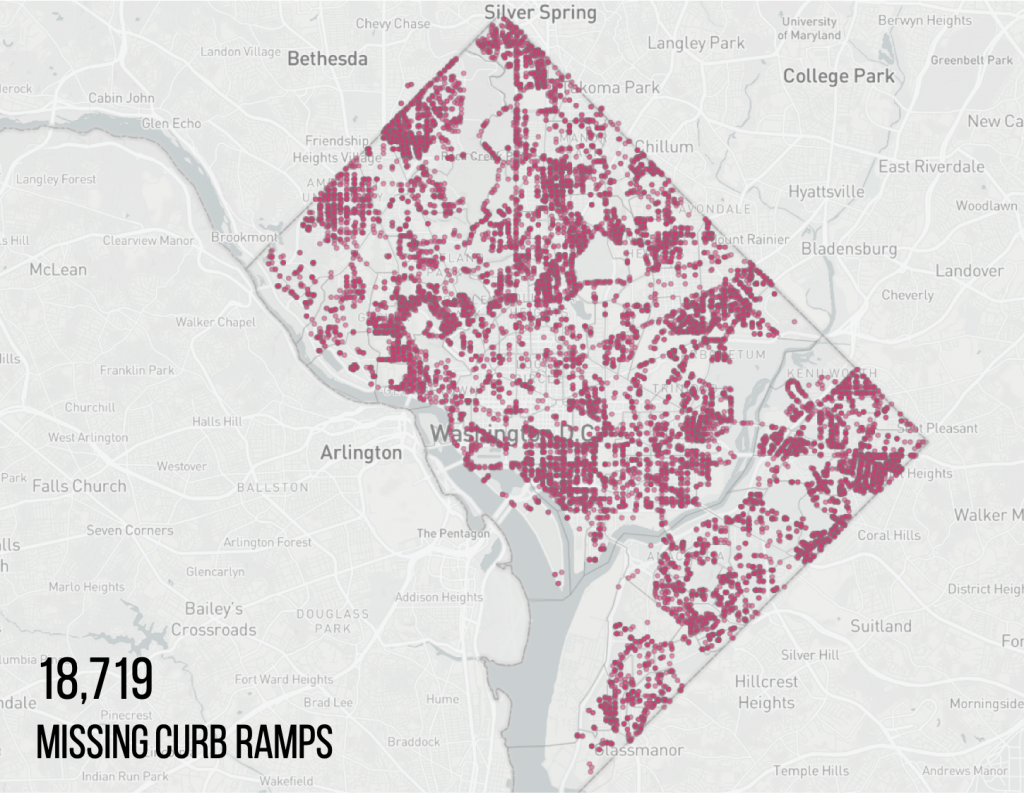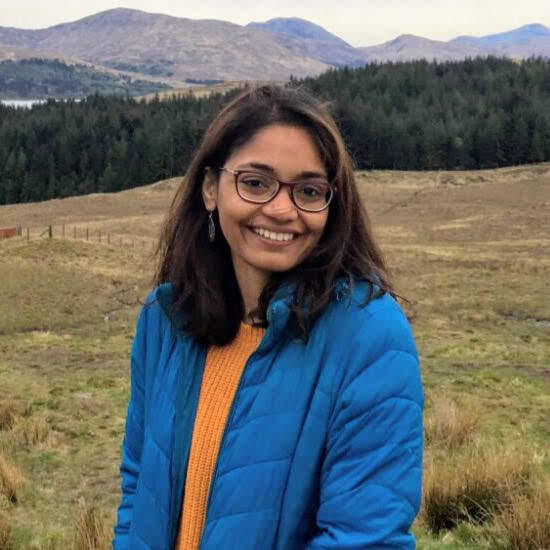Allen School Ph.D student Manaswi Saha has won an Amazon Catalyst award to support her research on “Combining computational and visualization techniques to understand urban accessibility at scale.” The award, which comes with $10,000 of funding attached, will support Saha’s dissertation research working with Allen School professor Jon Froehlich in the Makeability Lab.
“More than 30 million people have some form of disability in the U.S. Of these, half report using mobility aids. In spite of the growing need for accessible sidewalks, many cities remain inaccessible even after 25 years of the Americans with Disabilities Act regulations being in place,” Saha said. “Several cities have faced multi-million-dollar lawsuits for inaccessible sidewalks. However, there are currently no tools that can visualize and quantify this issue at scale.”
Saha’s latest endeavor is an extension of her work on Project Sidewalk, a web-based crowdsourcing tool. It gamifies the collection of data on curb ramps, obstacles and other relevant sidewalk conditions by allowing volunteers to virtually walk through online streetview imagery. The first deployment of the project in 2016 was done in Washington, D.C., where 797 online users audited 2,941 miles of streets to report on accessibility issues in the city, with subsequent deployments in Seattle and Newberg, Oregon. Saha will apply her Catalyst award towards building an interactive web visualization tool that will answer questions about accessibility for stakeholders: people with mobility disabilities, caregivers, local government officials (e.g. transportation departments), policymakers, and accessibility advocates. It will help answer questions such as: Which are the most inaccessible areas in the city? Why is my neighborhood inaccessible? Where should we prioritize for allocating resources for these repairs?
The goals, Saha said, are to fill the informational gap between citizens and the local government in their understanding of urban accessibility, increase transparency by visualizing the current state of accessibility, and creating advocacy efforts for bringing about change.

“As a start, we will be utilizing data collected in D.C. from Project Sidewalk and other available data sources such as from the Department of Transportation,” Saha said. “Eventually, this work would be expanded to other cities to offer them similar support.”
Saha published “Project Sidewalk: A Web-based Crowdsourcing Tool for Collecting Sidewalk Accessibility Data at Scale” that earned a Best Paper Award at the Association for Computing Machinery Conference on Human Factors in Computing Systems (CHI 2019) in May. The co-authors include Froehlich, research scientist Michael Saugstad and undergrad Aileen Zeng at UW, students Hanuma Teja Maddali, Steven Bower, Aditya Dash and Anthony Li at the University of Maryland, College Park, high school student Ryan Holland, from Montgomery Blair High School, undergrad student Sage Chen from the University of Michigan and professor Kotaro Hara from Singapore Management University.
The Amazon Catalyst program is a collaboration between the University of Washington’s CoMotion and Amazon that grants funds to faculty, staff and students to encourage innovation. The goal is to support those in the UW community working on solutions to solve real-world problems. So far, the program has helped to fund 50 UW projects. Saha has been working on a novel solution to a real-world problem in urban transportation, an area of research the Catalyst program was focused on this year.
Read the Amazon Catalyst press release here, and learn more information about Project Sidewalk here. Check out past coverage of Saha and the Project Sidewalk team’s work by UW News, KIRO7, Crosscut, and Seattle Met.
Congratulations, Manaswi!


